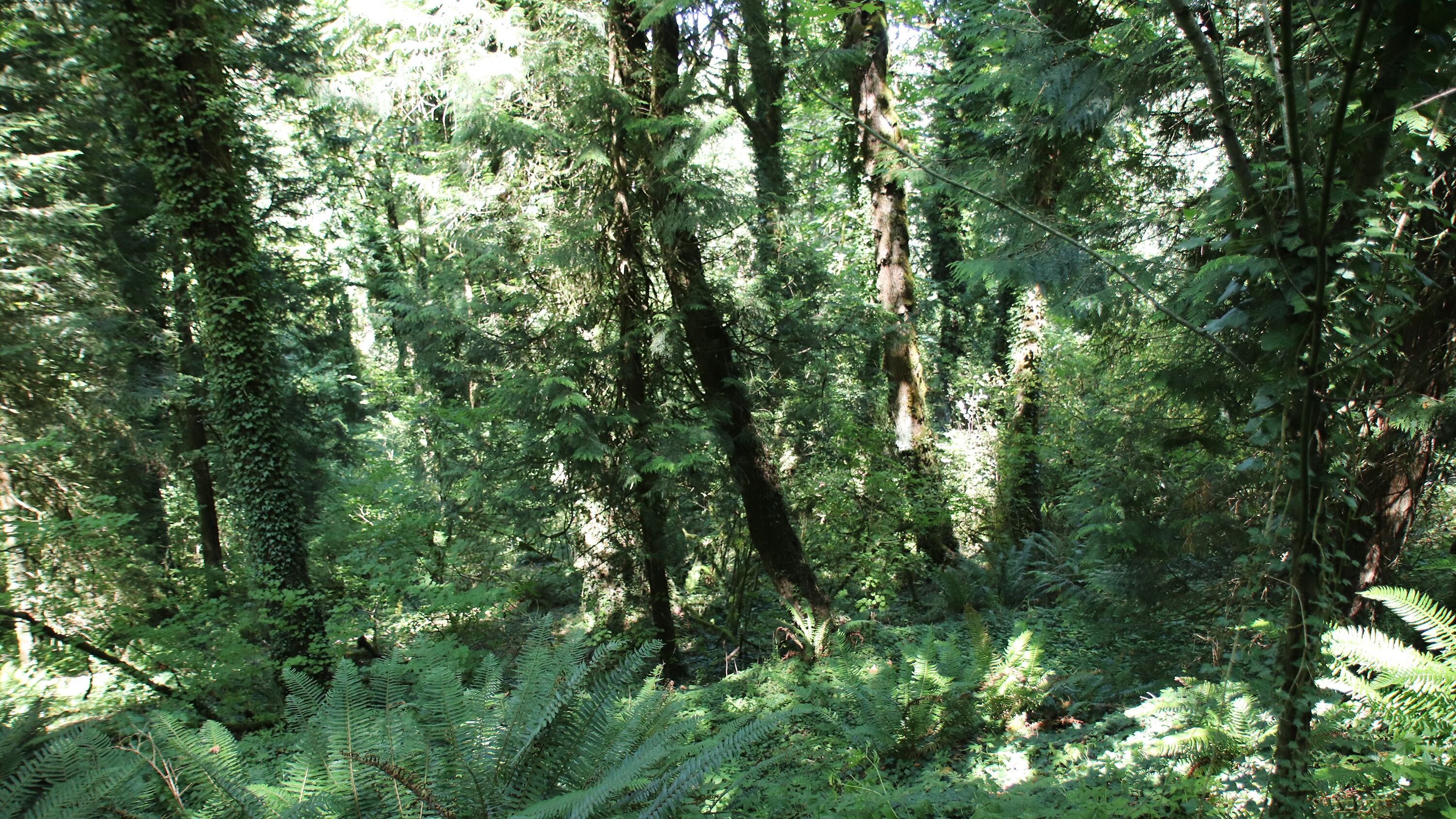A Portland real-estate developer has donated 22 acres of West Hills forest to the Audubon Society, preserving wildlife habitat where he had planned to build 32 multimillion-dollar homes.
The "Pittock Place" property, at the edge of Forest Park in Northwest Portland, will increase the 150 acres of forest the Audubon Society of Portland already owns.
Developer Marty Kehoe says the property was appraised at $14 million. He had planned to build homes there—but his daughter, Katie, suggested he donate it instead.
"As a family, we talked a lot about this," Kehoe said in a statement. "We loved the property and felt that it would make a wonderful gift—not only to the Portland Audubon, but as a permanent gift to the whole city."
Kehoe and the Audubon Society announced the gift today with a ceremonial ivy cutting. The property will be renamed Katherine Lynn Kehoe Sanctuary, after the person who made the case for its preservation.
Kehoe placed a condition on the gift: The Audubon Society needed to pay off the remaining mortgage. Audubon donors raised $200,000 to do so.

"We've fought to protect lands like this for over a century, and felt development would eventually happen if we didn't act," Portland Audubon Executive Director Nick Hardigg says. "We also recognized that this would be one of the most valuable gifts to Portland Audubon ever—worth millions—and we are incredibly grateful to the Kehoe family."
The Audubon Society says the Pittock Place forest was one of the most at-risk habitats in the West Hills. Its steep hills are covered by fir and deciduous trees, it's home to birds like the varied thrush and the spotted towhee, and it includes the headwaters of Bones and Balch Creeks.
Portland City Hall is providing $500,000 to prevent future sale of the property and restore the banks of the streams. Creek bank erosion is one of the biggest threats to wildlife here—the city believes Balch Creek contains the healthiest population of cutthroat trout in the city.
Don't expect to visit soon. The property is entirely undeveloped, with no hiking trails.

